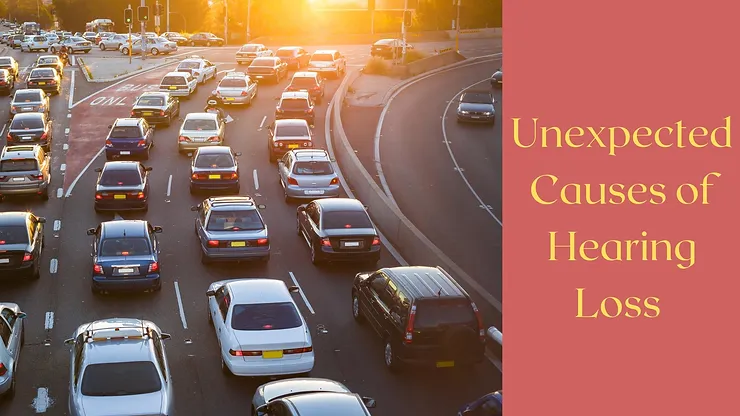
Most of us attending a noisy event, such as a fireworks show or a concert in the past, might consider the dangers of noise-induced hearing loss and wear earplugs. Likewise, occupational hearing loss is a persistent problem. Still, most workers who work in noisy environments are expected to wear hearing protection.
Other, less visible sources of hearing loss, on the other hand, can cause permanent harm to the ears. Be mindful that hearing loss can strike at any moment, in both our personal and professional lives. There is no single cause of hearing loss; in fact, hearing loss can strike someone at any age. Here, we’ll look at some of the more common causes of hearing loss, as well as some less-expected ones.
Common causes of hearing loss
Conductive, sensorineural, and mixed hearing loss are the three types of hearing loss. There are various degrees of hearing loss, ranging from moderate to profound. People appear to experience hearing loss in various ways as a result of all of these various configurations. Hearing loss is handled differently depending on the cause, depending on lifestyle, age, and genetic makeup.
Exposure to loud noise (noise-induced hearing loss) and the aging process are the two most common causes of hearing loss, but here are some other causes you may not have realized.
Hearing Loss from Unexpected Sources
Tobacco use
Cigarette smoking has been related to a variety of medical problems, including heart disease and lung cancer. Did you know it can cause hearing loss as well?
Smokers are 70 percent more likely than nonsmokers to develop hearing loss, according to several reports. The chemicals in cigarettes, such as formaldehyde, arsenic, ammonia, hydrogen cyanide, and nicotine, can cause irreversible damage to your inner ear’s hair cells. Inner ear hair cells convert sound waves into neural signals that the brain interprets as sound. Nicotine has also been discovered to disrupt the neurotransmitters in the auditory nerve, which helps the brain to hear sounds.
Public transportation
If you use public transit to get around, noise-canceling headphones or earplugs can be beneficial. “Subway and train noise trigger irreversible hearing loss with as little as two minutes exposure to the trains roaring into the station twice a day,” according to studies from the University of Washington and Columbia University Mailman School of Public Health. This research, conducted in New York City, found that subways had the highest noise levels, at 80.4 decibels. You are also subjected to sounds of about 102.1 decibels while standing on the subway platform as a train approaches.
High blood pressure
One of the most common health problems in the United States can also damage our hearing. When a person has high blood pressure, the blood vessels all over the body are destroyed. This includes the blood vessels that supply the ears with oxygen and nutrients.
Hearing loss is more common in people with high blood pressure, according to studies. If blood pressure remains elevated for an extended period, hearing organs can be permanently damaged. But when a person’s blood pressure is brought down after a brief period of high blood pressure, their hearing can return to normal.
Ototoxic drugs
Ototoxic drugs are medicines that can harm your ears by causing ototoxicity (ear damage). Hearing loss, hyperacusis, tinnitus, and various balance issues are also possible side effects of these medications. Although doctor-prescribed drugs can help treat a serious health problem, they can also damage the delicate hair cells in the inner ear, affecting a person’s ability to hear and balance.
Of course, not everyone who takes medication suffers from hearing loss. Even if hearing loss is mentioned as a side effect on a drug’s label, that doesn’t mean you’ll get it if you take it. Some of them do. Many people do not. It is, however, essential to be aware of the side effects of any medication you are taking. That way, if you ever experience a side effect, you’ll know what to do.
Hearing loss can be treated.
Though hearing loss affects many Americans, the causes and symptoms vary from person to person. Suppose you think you are experiencing changes in your hearing or have a degree of hearing loss. In that case, schedule a hearing test with us! This is the first step in deciding the form and cause of your hearing loss and the first step in determining the best treatment.
